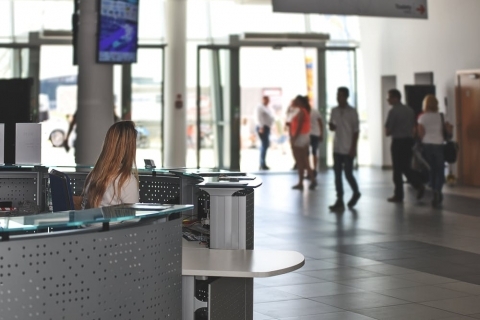Eventcore’s New SVP on How Technology is Changing Event Registration

Industry veteran David Beckett is no stranger to events, having worked with Experient – a Maritz Global Events Company for the better part of the last two decades. Yet the former Clevelander, now Seattleite, this spring joined the team at Eventcore — a company providing enterprise-level event registration technology software — as senior vice president of professional services. His main role is to oversee the quality of service delivery with Eventcore’s clients and partners.
TSNN sat down with Beckett in the midst of his big move out West to get his take on the latest trends and technologies shaping the event registration world.
How has event registration changed over the last five or 10 years?
The biggest change I’ve seen is leveraging what is acceptable in the marketplace around technology and applying it to events. Many times I hear of the Amazon effect, where [people want you to] show them you know who they are and make recommendations [based on their] history. That kind of consumer shift in purchasing has translated into event registration, which is a form of purchasing. [Everyone] is looking to leverage tech to be more personalized for their guests.
What about mobile app registration? How has that evolved?
The expectations around social media and the sharing economy in the general marketplace are all prevalent in the meeting space as well. When mobile apps came out, they were mostly just an agenda on your phone. Now mobile apps are your registration system on your phone. It’s the same way in the airline industry, where you can book your airfare from your mobile device. The expectation is that you should be able to register, sign up for sessions, change sessions, etc. all in the app.
What do planners get wrong when it comes to registration?
The challenge I see planners facing is heightened awareness around branding. The common flaw we’re faced with in building out [registration technology] is that many times the client hasn’t synchronized within their own house. We get a lot of change requests. Meeting planning is difficult enough aligning people on how they’re going to organize an event, and usually registration is the last thing they’re thinking about — but a change in event design impacts registration. [It involves] a lot of change management, which can increase their costs.
What’s your advice on how to avoid too many changes?
I see stumbles from clients when they try to start before they have enough information. The solution has to be agility — being prepared for change and making sure your application and your design can respond to those changes as quickly and efficiently as possible. A former boss said to me, ‘In registration, 10,000 little things can go wrong; what’s important is how you respond and correct something that isn’t working.’
What's the latest and greatest in registration technology?
The coolness factor is in the real-time integrations. With the influence of event apps, [there are] multiple systems — ranging from hotel systems to management systems to compliance and marketing systems — that have to be integrated so that there’s a single sign-on effect [for users]. You want that experience to be seamless and quick. I’m seeing the cost of customizing these integrations coming down dramatically because of the accelerated use of technology and the skill set of people using the tech being much higher than it was even five years ago.
How can planners use technology to enhance the face-to-face experience?
That lies in experience design methodologies upon arrival. I have yet to find anyone who enjoys standing in line waiting on credentials. But, I’ve seen [events] incorporating technology to help enhance face-to-face connections. An example of that is technology bars, where [guests] can go [to ask] questions about how to use some technology around the event. It’s basically a technology help desk populated with people to assist those needing help with a laptop, downloading the app, finding a charging station, etc. The use of technology and the help desk environment start to connect people.
What’s the bottom line when it comes to leveraging technology in the right way for events?
The good thing about technology is that ultimately, what you’re trying to do is connect the right people. [They’re telling you], ‘Here’s who I want to see and why, and here’s who I want to be seen by.’ The better you leverage the right technology, the better you can slice and dice your information around behaviors, and the better their return on the experience is going to be.


Add new comment